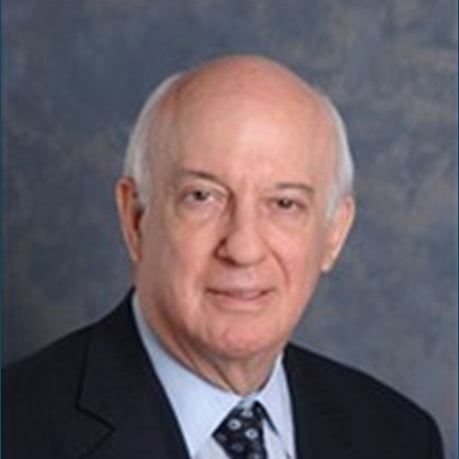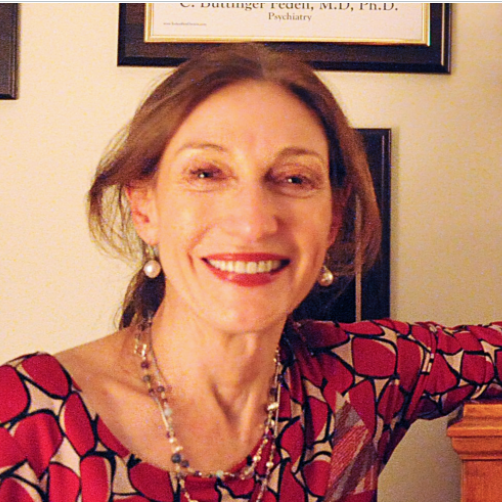
Dr. Michael H. Stone, MD
Psychiatrist | Psychiatry
225 Central Park West New York NY, 10024About
Dr. Michael Stone is a psychiatrist practicing in New York, NY. Dr. Stone is a medical doctor specializing in the care of mental health patients. As a psychiatrist, Dr. Stone diagnoses and treats mental illnesses. Dr. Stone may treat patients through a variety of methods including medications, psychotherapy or talk therapy, psychosocial interventions and more, depending on each individual case. Different medications that a psychiatrist might prescribe include antidepressants, antipsychotic mediations, mood stabilizers, stimulants, sedatives and hypnotics. Dr. Stone treats conditions like depression, anxiety, OCD, eating disorders, bipolar disorders, personality disorders, insomnia, ADD and other mental illnesses.
Education and Training
Cornell University Bachelor's Degree 1954
Cornell Medical College Medical Degree 1958
Board Certification
American Board of Psychiatry and Neurology
Provider Details

Dr. Michael H. Stone, MD's Expert Contributions
I think I have depression?
I would need to know more about you to be able to answer your question in a useful way. Was there anything hurtful or unpleasant happening in your family: parents or older siblings criticizing you harshly? Sickness or a death in the family? Not doing well at school? If none of those troublesome things were happening, then I would think whether at 12 you were having your first period? Quite a percentage of girls begin to have symptoms of depression and/or irritability - as they begin their menstrual life - even if everything else is OK in their family life, friendships, etc. If your depression turns out to be "hormonal" (because of the menstrual-induced changes), there are medicines that can lessen the depression. If your depression seems to have nothing to do with your period, then I'd want to know 2 things: are there other family members (parents, aunts & uncles, cousins, grandparents) who suffer from depression? And: are there any of those things I mentioned about family life, friends, school problems affecting you in a negative way that could trigger a depressed mood. Dr. Stone READ MORE
Does bipolar medication change your personality?
I wouldn’t say that the usual meds for bipolar disorder “change” one’s personality. Rather, they allow the better and more socially effective aspects of one’s personality to emerge stronger - while at the same time, the more problematic aspects of one’s personality will then recede. For example: if one were bipolar on the manic side, and were grandiose or given to outbursts of anger, treatment with mood stabilizers like lithium or lamotrigine or depakote would reduce those abnormal tendencies and restore one’s personality along more normal and agreeable and adaptive lines. READ MORE
Do antidepressants make you worse before better?
Not usually. The most commonly used antidepressants would not make one more depressed before they began to alleviate the depression a couple weeks later (they usually take several weeks before they help lift the depression). But sometimes there will be side effects like weight gain or interference with sleep that can be bothersome at first before the depression is lifted. READ MORE
Can a bipolar person live a normal life without medication?
There are bipolar persons with mild signs who can be thought of as on the low end of the “bipolar spectrum “ - who actually function at extremely high levels socially and occupation ally: certain big corporate executives and certain famous authors and Hollywood celebrities are “on the bipolar spectrum” - but who obviously function at a very high level and have so much energy and capacity for hard work and being active on into the wee hours because of their diminished need for sleep READ MORE
Is ADHD inherited from the mother or father?
ADHD can come from either the maternal or the paternal line - or from both. I know many persons with the condition who have relatives with ADHD or other mood disorders on both sides of the family. READ MORE
What are the treatment options for seasonal affective disorder?
Seasonal Affective Disorder ("S.A.D.") is a variety of mood disorder characterized usually by a notable degree of depression that may interfere significantly with the ability to work, or even to leave the house and take care of one's ordinary daily tasks. The condition begins typically in the late fall (around Thanksgiving-time, for those in the US), and lasts on until early spring (such as mid-March). It is called a disorder - because it tends to recur at similar times each year, and to last about the same time-frame. SAD occurs more often in women (who are more susceptible to depression in general - just as men are more vulnerable to aggressive behaviors). People in northern areas are more likely to develop SAD than are others in southern areas. In the US, there would, for example, be more cases diagnosed in Vermont than in Florida (let alone in Panama). Many persons with the condition also are prone at other times - to bouts of "hypomania": periods of over- talkativeness, diminished need for sleep, racing thoughts, and feeling "super" lively and happy. This suggests that SAD can be considered as an element in the so-called Bipolar Spectrum (the new name for "manic-depression"), with such related condition as recurrent depression, full-blown mania (with delusions of grandeur), "Bipolar-Type-Two Disorder (characterized by mild "highs" alternating with serious depressions). Those who besides living in cold climates also wear dark clothes and don't absorb sufficient Vitamin D3 from the sun - are also more at risk. People with SAD are more likely (than those in the general population) to have close relatives (siblings, parents, grandparents, aunt, uncles, cousins) with various forms of bipolar disorder (either in full-blown form or in a milder condition). The typical treatment consists of exposure to bright white light for at least a week of 2500 lux in strength. Many patients use a machine that delivers intense light of this sort - especially upon awakening - say at 7 or7:30 in the morning, for about half and hour. -- repeating this daily for a week or so. Of course - where additional signs of mood disorder ("manic-depression," "bipolar disorder" of one type or another should also take a mood stabilizer to help minimize the intensity of the depression or hypomania. Medications such as lamotrigine, small doses of lithium or depakote - may prove useful in minimizing and in regulating yhr SAD - till time ("spring-time!") finally puts the mood-disorder to rest. Till next year, that is! But once knowing you have the condition, forewarned is forearmed - and next Thanksgiving (give or take). READ MORE
Can you go to the hospital for anxiety?
If one has anxiety of "panic" proportions, where one is in a state of terror over what might happen to one, such a person would often go to an emergency room of a hospital, let the hospital staff know what one is suffering, and get help pretty quickly with medications that help calm that level of anxiety. Once the acute symptom was relieved, the next question would be: what had inspired the high anxiety in the first place: breakup of a love-relationship? A serious financial reversal in one' business? Death of a close relative? It might then be prudent to get further help with a psychotherapist who could learn from the patient what the major difficulty was in the person's life that led to the intense anxiety, feeling of hopelessness, etc., that led to the overwhelming anxiety in the first place. Medication could take care of the intense anxiety; then, psychotherapy could then help the patient to strengthen the coping mechanisms needed to deal adequately with the life situation that had precipitated the anxiety in the first place. Dr. M. Stone, MD READ MORE
Expert Publications
Data provided by the National Library of Medicine- American College of Sports Medicine position stand. Progression models in resistance training for healthy adults.
- Snatch technique of collegiate national level weightlifters.
- Effects of different set configurations on barbell velocity and displacement during a clean pull.
- Power and maximum strength relationships during performance of dynamic and static weighted jumps.
- Carbohydrate supplementation and resistance training.
- Effect of warm-up on the standing broad jump in trained and untrained men and women.
- Reliability of power output during short-duration maximal-intensity intermittent cycling.
- Influence of familiarization on the reliability of vertical jump and acceleration sprinting performance in physically active men.
- The reliability and validity of fatigue measures during short-duration maximal-intensity intermittent cycling.
- The relationship between vertical jump power estimates and weightlifting ability: a field-test approach.
- Comparison of the Wingate and Bosco anaerobic tests.
- The importance of isometric maximum strength and peak rate-of-force development in sprint cycling.
- Infanticide in female forensic patients: the view from the evolutionary standpoint.
- Plaudits and pitfalls in studying elite athletes.
- Relationship of maximum strength to weightlifting performance.
Professional Memberships
- Association of Psychoanalytic Medicine
- American Psychiatric Association
- New York County Medical Society
- American Academy of Psychoanalysis
- American Psychopathological Association
- American College of Psychiatrists
- American College of Psychoanalysts
- American College of Forensic Psychiatry
- International Society for the Study of Personality Disorders
- International Society for Adolescent Psychiatry
- American Academy of Psychiatry & the Law
Fellowships
- Memorial Sloan Kettering Cancer Center (Hematology)
Professional Society Memberships
- American College of Psychiatrists, American Psychiatric Association, American Psychoanalytic Association, Royal College of Psychiatrists, American Academy of Psychiatry and the Law, Personality Disorders Institute
Dr. Michael H. Stone, MD's Practice location
Michael H. Stone, MD
225 Central Park West -New York, NY 10024Get Direction
Dr. Michael H. Stone, MD's reviews
Write ReviewRecommended Articles
- Can ADHD Be Treated Only with Medication?
Medication alone isn’t enough. Medication for ADHD is not all about seeking the services of a doctor or physician. You need to design mechanisms you can use to tackle the challenges associated with ADHD so that you can lead a more peaceful and productive life. With the most reliable tips, you can...
- Is ADHD Lifelong?
ADHD is often regarded as a childhood disorder. ADHD patients are usually inattentive, impulsive, and hyperactive. About 60% of these children will experience the condition throughout their entire life. In the US, more than 4% of the adults are living with ADHD. Unfortunately, a bigger fraction of...
- Understanding Psychotherapy
Most of us usually become too overwhelmed when dealing with the issues affecting our lives. Cases of depression, anxiety, and mental disorders are very common today. Others struggle with weight-related issues, addiction, sexuality, relationships, and loss of jobs, among others. All these concerns...
- What Is Obsessive Compulsive Disorder?
Obsessive compulsive disorder (OCD) is an anxiety disorder characterized by obsessive, unreasonable thoughts, and repetitive, compulsive behaviors. The recurring thoughts and fears, called obsessions, leads to the need to repetitively perform certain actions, called compulsions, that would help in...
- Depression Leads to Non-Adherence of COPD Medication
Chronic obstructive pulmonary disease (COPD) is a progressive disease, which currently does not have a cure yet, as modern medicine has not found a way to reverse the damage done to the airways and lungs. For this reason, there is a slow and long-term development of debilitating symptoms. The...
- Is Schizophrenia Fatal?
Schizophrenia by itself is not fatal like cancer or any other life-threatening diseases. However, many cases of death have been accounted for and the usual reason behind it is suicide. Moreover, people who have adopted habits such as smoking, taking prohibited drugs, or unhealthy eating, either due...
Nearby Providers
- Catharine Buttinger-Fedeli275 Central Park West New York New York 10024
- Dr. Scott Bienenfeld M.D.275 CENTRAL PARK W NEW YORK NY 10024
- Dr. Catharine Buttinger Fedeli M.D.275 Central Park W New York NY 10024
- Dr. Gabrielle Silver M.D.470 West End Avenue New York New York 10024
- Dr. Patricia Leebens MD20 W 86th St New York NY 10024
- Dr. David Albert M.D.275 Central Park West New York New York 10024
Nearest Hospitals
LENOX HILL HOSPITALl
100 EAST 77TH STREET NEW YORK NY 10021MOUNT SINAI HOSPITALl
ONE GUSTAVE L LEVY PLACE NEW YORK NY 10029







